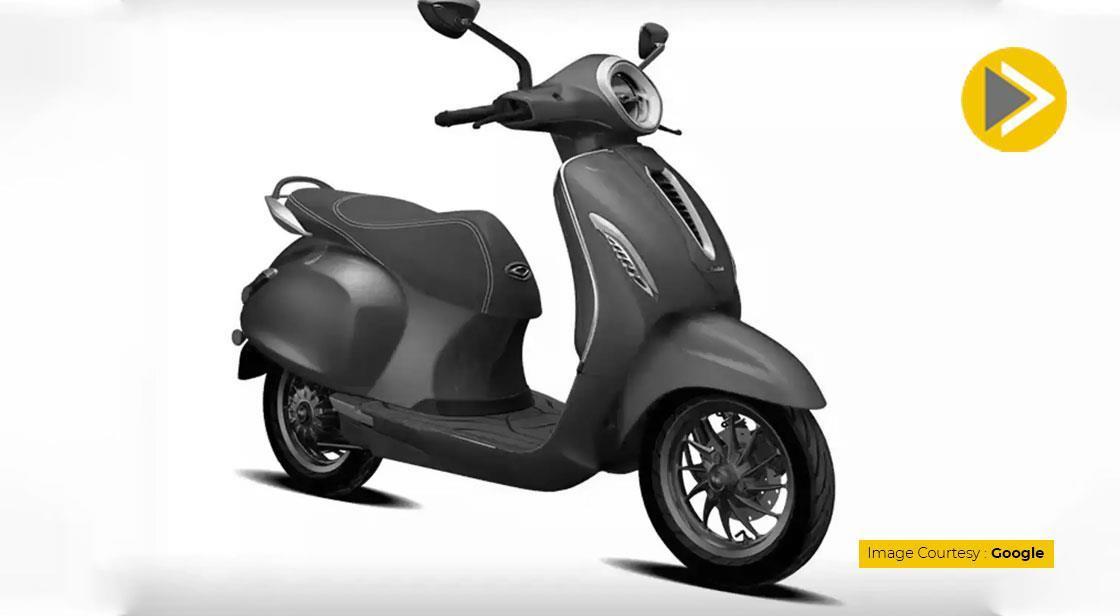Bajaj Auto Set to Launch Affordable Chetak Variant in June, Plans Wider EV Lineup in FY26

News Synopsis
Bajaj Auto Ltd., a prominent name in India’s electric two-wheeler space, is gearing up to launch a new entry-level Chetak electric scooter in June 2025. This latest offering is aimed at strengthening Bajaj’s position in the fast-expanding EV market and catering to price-sensitive urban commuters looking for efficient and stylish mobility options.
Expanding the Chetak Lineup to Lead the EV Market
The upcoming model will expand on the success of the Chetak 35 Series platform, which debuted in December 2024. According to Rakesh Sharma, Executive Director at Bajaj Auto, the Chetak brand has witnessed a significant jump in market share — growing from 13% in Q4 FY24 to 25% in Q4 FY25. This 12-percentage-point surge has positioned Chetak as the number one electric scooter brand in India.
New Chetak Variants to Broaden Market Reach
In May 2025, Bajaj introduced the Chetak 3503, the third model under the 35 Series. Now, the company is preparing to launch a refreshed entry-level variant, expected to be an upgrade to the popular Chetak 2903, in June. This strategic update is aimed at solidifying Bajaj’s footprint in the high-volume, budget-conscious scooter segment.
“The new model will make the Chetak range even more potent. Further portfolio expansion is also planned in FY26 to cater to emerging sub-segments,” Sharma stated.
Current Chetak EV Lineup and Pricing
The Chetak electric scooter currently comes in four variants:
-
Chetak 2903 (Base variant) – Starting at ₹99,998
-
Chetak 3503
-
Chetak 3502
-
Chetak 3501 (Top-end) – Priced at ₹1,32,000
These models cover a wide range of user needs, from entry-level commuters to tech-savvy urban riders.
Bajaj Expands Retail Network Across India
To support growing demand and ensure customer accessibility, Bajaj Auto has rapidly expanded its retail presence. The company now operates 310 Chetak experience centres and has over 3,000 sales points nationwide. These efforts aim to provide a seamless customer experience while boosting brand visibility and reach.
Sharma expressed confidence that this expanded network will help Bajaj Auto sustain its leadership and achieve profitable growth in FY26.
Record-Breaking Revenue in FY25 Driven by EV Growth
Bajaj Auto’s domestic business recorded its highest-ever revenue in FY25, registering 12% year-on-year growth. This growth was largely driven by robust performance in both two-wheeler and three-wheeler categories.
Of particular note, electric vehicles contributed over ₹5,500 crore to Bajaj’s revenue — nearly 20% of its domestic sales — underscoring the automaker’s stronghold in the EV segment.
Cost Optimization and Government Support Fuel EV Competitiveness
According to CFO Dinesh Thapar, Bajaj Auto’s electric portfolio has greatly benefited from cost optimization strategies and incentives under the Production-Linked Incentive (PLI) scheme. These advantages have enabled the company to stay competitive and offer high-quality electric scooters at more accessible price points amid rising affordability trends in the EV market.
Supply Chain Concerns Over Rare Earth Magnets
Despite Bajaj Auto’s successes, supply chain hurdles are emerging, particularly around the import of rare earth magnets from China — a crucial component in EV motors.
Rakesh Sharma highlighted the complexity of the current import approval process. The clearance requires multiple certifications from Indian ministries, the Chinese embassy, and China’s export authority, including an end-use declaration stating non-military application.
So far, over 30 applications have been filed by Indian automotive companies, but none have received final clearance. “Chinese authorities have indicated a processing time of 40–45 days, but that cycle hasn’t concluded,” Sharma noted.
July Production at Risk if Import Delays Persist
Sharma warned that if the rare earth magnet supply issue remains unresolved, production in July could face significant disruptions. “As of now, inventory levels are falling. Without timely shipments, July output will be seriously affected,” he said. He also emphasized that this is a sector-wide issue, not just limited to Bajaj Auto.









